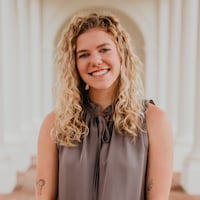Ever wondered what goes into the production of a “Dateline NBC” episode? Now is your chance to learn more at Savannah College of Art and Design’s TVfest: True Crime.
Correspondents Andrea Canning and Josh Mankiewicz will take the stage Friday for “In Conversation with Dateline,” a segment of TVfest dedicated to hearing about the process behind the network’s popular shows. The event comes just one week before the release of a podcast episode of “Missing in America,” hosted by Mankiewicz, which will focus on the disappearance of an 8-year-old girl from Unadilla in Middle Georgia.
While Friday’s event on SCAD’s Midtown Atlanta campus is not specifically related to the release of the Georgia-based episode, Canning and Mankiewicz will discuss their roles in researching, investigating and writing some of Dateline’s shows and podcasts.
Mankiewicz said the motivation for this type of work comes from the desire to share information and move missing person cases forward. He added that there’s a strong chance many of the cases covered in “Missing in America” will have another year go by without answers.
“What we are hoping to do with ‘Missing in America’ is to change that arc a little bit, because there are almost certainly people out there who know something,” he told The Atlanta Journal-Constitution this week in an exclusive interview.
The July 18 episode, one of six of the third podcast season, will focus on the 1998 disappearance of Shy’Kemmia Pate from her small town 45 minutes south of Macon, which had a population of just over 1,600 at the time. Pate would be 34 years old today.
Pate, known by her friends and family as Shy-Shy, disappeared “essentially right in front of her family,” Mankiewicz said.
On the evening of Sept. 4, Shy-Shy was planning to attend a high school football game, the AJC reported in 2007. Her older sister, Laswanda Pate, is believed to be one of the last people to see Shy-Shy as she waved to her from a neighbor’s porch.
Only minutes later, as Laswanda returned from getting gas just down the road, Shy-Shy was nowhere to be found.
Mankiewicz said the story is unique because she vanished from an area she was familiar with and felt safe. That’s in contrast to the more common missing child stories in which an individual disappeared in a crowd or an unfamiliar area.
“And that (difference is) one of those things that brings a decision to do a story home for us,” Mankiewicz said.
He said Dateline tries to focus on stories that are not frequently told, especially those about people of color. Canning added that the Dateline name is recognizable and therefore has the ability “to bring attention to these cases that otherwise may not get it.”
SCAD hosts several TVfests throughout the year, each focused on a different type of TV, from documentary making to comedy. While Friday’s four sessions are targeted toward students, they are open to anyone curious about true crime TV.
The session with Mankiewicz and Canning will begin at 5:30 p.m. Other sessions feature an exclusive screening of “How I Caught My Killer,” as well as workshops on adapting true crime into shows and identifying stories that will be successful on the big screen. Tickets, which are to be purchased separately for each of the four sessions, are $10 for the public.
True crime has always had a stronghold on the American public, but people have become increasingly fascinated with it over the past decade due to an explosion in media related to the genre. Canning and Mankiewicz think the intrigue is driven by the shock factor.
People “can’t believe that this happened in (their) backyard,” Canning said.
Mankiewicz theorized that viewers and listeners want to see the criminal justice system, “which so often doesn’t work correctly, work correctly in that instance.”
About the Author
Keep Reading
The Latest
Featured




